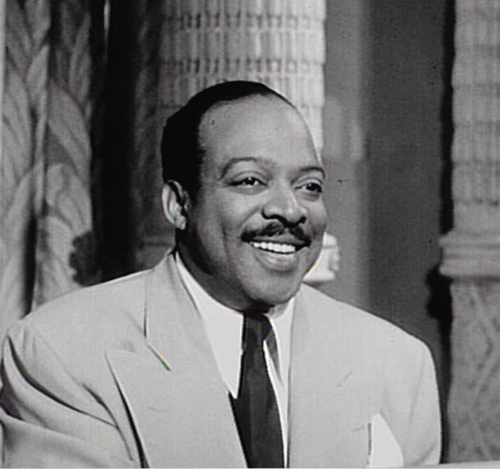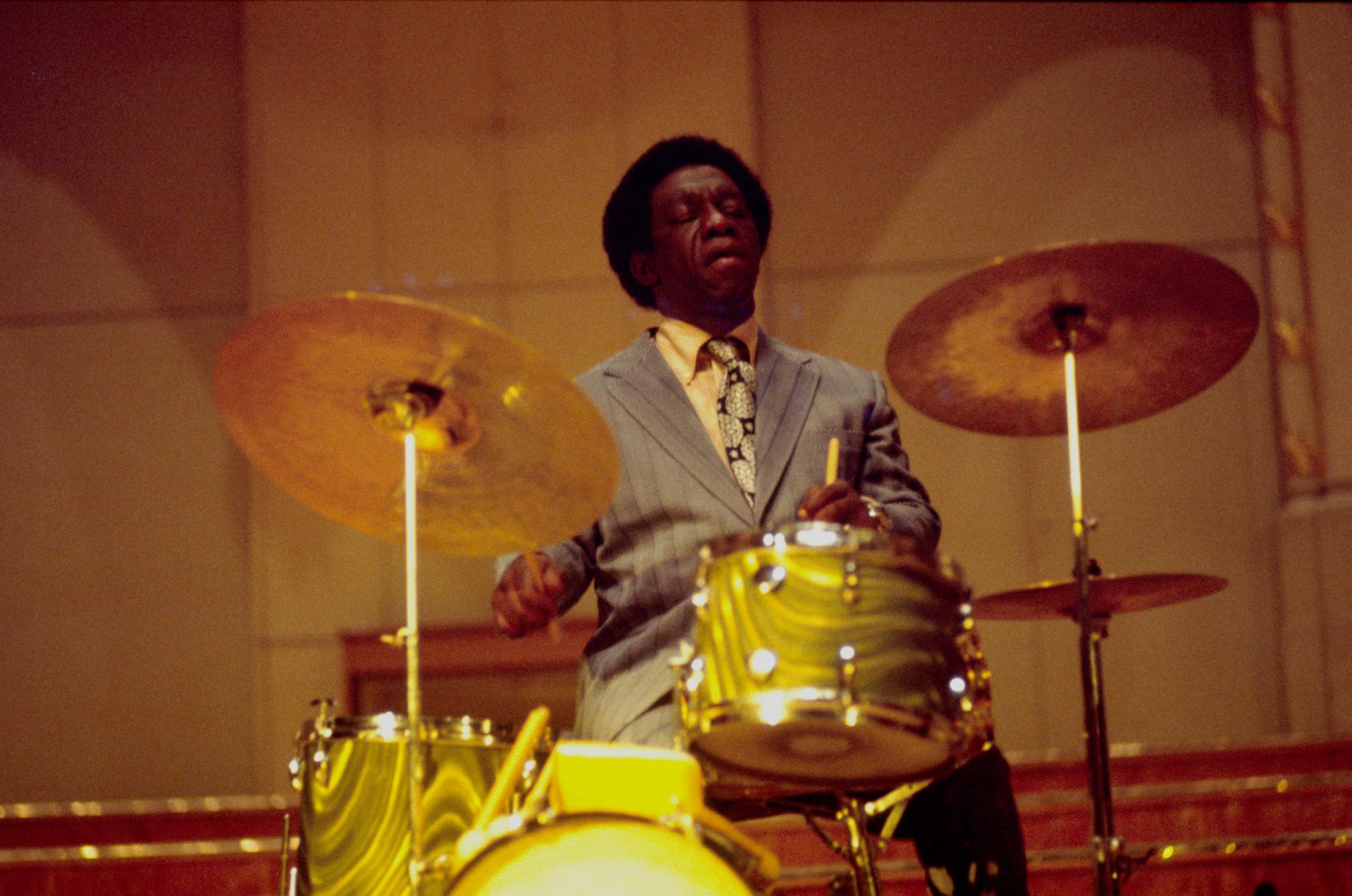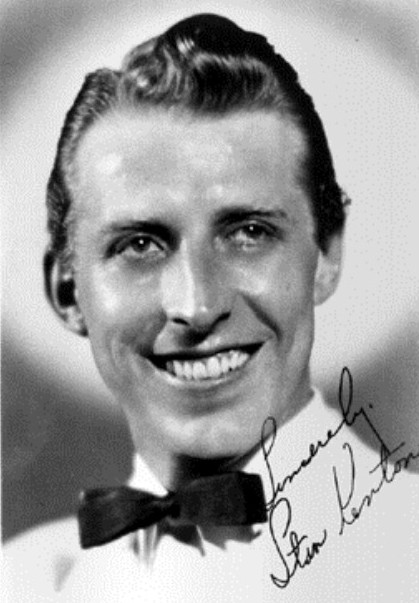|
Big Band And Jazz Hall Of Fame
The Big Band and Jazz Hall of Fame is part of a US-based non-profit organization (The Big Band and Jazz Hall of Fame Foundation) that began operations in 1978 and continues to the present in San Diego County, California. David Larkin is the current president. The board Vice President in 1997 Daniel Del Fiorentino. The foundation's musical ensemble - the Big Band Jazz Hall of Fame Orchestra - continues to perform each year - primarily in the summer months in the San Diego North County area. Concerts scheduled in 2020 and 2021 were postponed and canceled due to the Covid Pandemic. Its first concerts back took place August 27, 2022 at the Willowbrook Concert Series in Vista, CA. Numerous Big Band/ Swing Era and Jazz artists have been guests with the ensemble over the years including: Herb Jeffries (Ellington & Earl Hines vocalist), Bill Watrous (trombone), Kevin Cole (piano) and Tad Calcara (principal clarinet of the Utah Symphony). The foundation continues to support local p ... [...More Info...] [...Related Items...] OR: [Wikipedia] [Google] [Baidu] |
Louis Armstrong
Louis Daniel Armstrong (August 4, 1901 – July 6, 1971), nicknamed "Satchmo", "Satch", and "Pops", was an American trumpeter and vocalist. He was among the most influential figures in jazz. His career spanned five decades and several eras in the history of jazz. Armstrong received numerous accolades including the Grammy Award for Best Male Pop Vocal Performance, Grammy Award for Best Male Vocal Performance for ''Hello, Dolly! (song), Hello, Dolly!'' in 1965, as well as a posthumous win for the Grammy Lifetime Achievement Award in 1972. His influence crossed musical genres, with inductions into the DownBeat, ''DownBeat'' Jazz Hall of Fame, the Rock and Roll Hall of Fame, and the National Rhythm & Blues Hall of Fame, among others. Armstrong was born and raised in New Orleans. Coming to prominence in the 1920s as an inventive trumpet and cornet player, he was a foundational influence in jazz, shifting the focus of the music from collective improvisation to solo performance. ... [...More Info...] [...Related Items...] OR: [Wikipedia] [Google] [Baidu] |
Count Basie
William James "Count" Basie (; August 21, 1904 – April 26, 1984) was an American jazz pianist, organist, bandleader, and composer. In 1935, he formed the Count Basie Orchestra, and in 1936 took them to Chicago for a long engagement and their first recording. He led the group for almost 50 years, creating innovations like the use of two "split" tenor saxophones, emphasizing the rhythm section, riffing with a big band, using arrangers to broaden their sound, his minimalist piano style, and others. Many musicians came to prominence under his direction, including the tenor saxophonists Lester Young and Herschel Evans, the guitarist Freddie Green, trumpeters Buck Clayton and Harry "Sweets" Edison, plunger trombonist Al Grey, and singers Jimmy Rushing, Helen Humes, Dennis Rowland, Thelma Carpenter, and Joe Williams (jazz singer), Joe Williams. As a composer, Basie is known for writing such jazz standards as "Blue and Sentimental", "Jumpin' at the Woodside" and "One O'Clock Jump" ... [...More Info...] [...Related Items...] OR: [Wikipedia] [Google] [Baidu] |
Bill Evans
William John Evans (August 16, 1929 – September 15, 1980) was an American Jazz piano, jazz pianist and composer who worked primarily as the leader of his trio. His use of impressionist harmony, block chords, innovative chord voicings, and trademark rhythmically independent "singing" melodic lines continue to influence jazz pianists today. Born in Plainfield, New Jersey, United States, he studied classical music at Southeastern Louisiana College and the Mannes School of Music, in New York City, where he majored in composition and received an artist diploma. In 1955, he moved to New York City, where he worked with bandleader and theorist George Russell (composer), George Russell. In 1958, Evans joined Miles Davis's sextet, which in 1959, then immersed in modal jazz, recorded ''Kind of Blue'', the best-selling jazz album of all time. In late 1959, Evans left the Miles Davis band and began his career as a leader, forming a Jazz trio, trio with bassist Scott LaFaro and drumm ... [...More Info...] [...Related Items...] OR: [Wikipedia] [Google] [Baidu] |
Dizzy Gillespie
John Birks "Dizzy" Gillespie ( ; October 21, 1917 – January 6, 1993) was an American jazz trumpeter, bandleader, composer, educator and singer. He was a trumpet virtuoso and improvisation, improviser, building on the virtuosic style of Roy Eldridge but adding layers of Harmony, harmonic and rhythmic complexity previously unheard in jazz. His combination of musicianship, showmanship, and wit made him a leading popularizer of the new music called bebop. His beret and horn-rimmed spectacles, scat singing, bent horn, pouched cheeks, and light-hearted personality have made him an enduring icon. In the 1940s, Gillespie, with Charlie Parker, became a major figure in the development of bebop and modern jazz. He taught and influenced many other musicians, including trumpeters Miles Davis, Jon Faddis, Fats Navarro, Clifford Brown, Arturo Sandoval, Lee Morgan, Chuck Mangione, and balladeer Johnny Hartman. He pioneered Afro-Cuban jazz and won several Grammy Awards. Scott Yanow wrote: "Di ... [...More Info...] [...Related Items...] OR: [Wikipedia] [Google] [Baidu] |
Coleman Hawkins
Coleman Randolph Hawkins (November 21, 1904 – May 19, 1969), nicknamed "Hawk" and sometimes "Bean", was an American jazz tenor saxophonist.Yanow, Scot"Coleman Hawkins: Artist Biography" AllMusic. Retrieved December 27, 2013. One of the first prominent jazz musicians on his instrument, as Joachim-Ernst Berendt, Joachim E. Berendt explained: "There were some tenor players before him, but the instrument was not an acknowledged jazz horn". Hawkins biographer John Chilton described the prevalent styles of tenor saxophone solos prior to Hawkins as "mooing" and "rubbery belches". Hawkins denied being first and noted his contemporaries Happy Caldwell, Stump Evans, and Prince Robinson, although he was the first to tailor his method of Jazz improvisation, improvisation to the saxophone rather than imitate the techniques of the clarinet. Hawkins' virtuosic, arpeggiated approach to improvisation, with his characteristic rich, emotional, and vibrato-laden tonal style, was the main influen ... [...More Info...] [...Related Items...] OR: [Wikipedia] [Google] [Baidu] |
Charles Mingus
Charles Mingus Jr. (April 22, 1922 – January 5, 1979) was an American jazz Double bass, upright bassist, composer, bandleader, pianist, and author. A major proponent of collective Musical improvisation, improvisation, he is considered one of the greatest jazz musicians and composers in history,See the 1998 documentary ''Triumph of the Underdog'' with a career spanning three decades and collaborations with other jazz greats such as Duke Ellington, Charlie Parker, Max Roach, and Eric Dolphy. Mingus's work ranged from advanced bebop and avant-garde jazz with small and midsize jazz ensemble, ensembles to pioneering the post-bop style on seminal recordings like ''Pithecanthropus Erectus (album), Pithecanthropus Erectus'' (1956) and ''Mingus Ah Um'' (1959) and progressive big band experiments such as ''The Black Saint and the Sinner Lady'' (1963). Mingus's compositions continue to be played by contemporary musicians ranging from the repertory bands Mingus Big Band, Mingus Dynasty (b ... [...More Info...] [...Related Items...] OR: [Wikipedia] [Google] [Baidu] |
Art Blakey
Arthur Blakey (October 11, 1919 – October 16, 1990) was an American jazz drummer and bandleader. He was also known as Abdullah Ibn Buhaina after he converted to Islam for a short time in the late 1940s. Blakey made a name for himself in the 1940s in the big bands of Fletcher Henderson and Billy Eckstine. He then worked with bebop musicians Thelonious Monk, Charlie Parker, and Dizzy Gillespie. In the mid-1950s, Horace Silver and Blakey formed The Jazz Messengers, a group which he led for the next 35 years. The group was formed as a collective of contemporaries, but over the years the band became known as an incubator for young talent, including Freddie Hubbard, Wayne Shorter, Lee Morgan, Benny Golson, Kenny Dorham, Hank Mobley, Donald Byrd, Jackie McLean, Johnny Griffin, Curtis Fuller, Chuck Mangione, Chick Corea, Keith Jarrett, Cedar Walton, Woody Shaw, Terence Blanchard, and Wynton Marsalis. ''The Biographical Encyclopedia of Jazz'' calls the Jazz Messengers "the ... [...More Info...] [...Related Items...] OR: [Wikipedia] [Google] [Baidu] |
Stan Kenton
Stanley Newcomb Kenton (December 15, 1911 – August 25, 1979) was an American popular music and jazz artist. As a pianist, composer, arranger and band leader, he led an innovative and influential jazz orchestra for almost four decades. Though Kenton had several pop hits from the early 1940s into the 1960s, his music was always forward-looking. Kenton was also a pioneer in the field of jazz education, creating the Stan Kenton Band Clinics, Stan Kenton Jazz Camp in 1959 at Indiana University.Sparke, Michael. ''Stan Kenton: This is an Orchestra.'' UNT Press (2010). . Early life Stan Kenton was born on December 15, 1911, in Wichita, Kansas; he had two sisters (Beulah and Erma Mae) born three and eight years after him, respectively. His parents, Floyd and Stella Kenton, moved the family to Colorado, and in 1924, to the Greater Los Angeles Area, settling in suburban Bell, California. Kenton attended Bell High School (Bell, California), Bell High School; his high-school yearbook pict ... [...More Info...] [...Related Items...] OR: [Wikipedia] [Google] [Baidu] |
Jelly Roll Morton
Ferdinand Joseph LaMothe ( Lemott, later Morton; c. September 20, 1890 – July 10, 1941), known professionally as Jelly Roll Morton, was an American blues and jazz pianist, bandleader, and composer of Louisiana Creole descent. Morton was jazz's first arranger, proving that a genre rooted in improvisation could retain its essential characteristics when notated. His composition " Jelly Roll Blues", published in 1915, was one of the first published jazz compositions. He also claimed to have invented the genre. Morton also wrote " King Porter Stomp", " Wolverine Blues", " Black Bottom Stomp", and "I Thought I Heard Buddy Bolden Say", the last being a tribute to New Orleans musicians from the turn of the 20th century. Morton's claim to have invented jazz in 1902 was criticized. Music critic Scott Yanow wrote, "Jelly Roll Morton did himself a lot of harm posthumously by exaggerating his worth ... Morton's accomplishments as an early innovator are so vast that he did not really n ... [...More Info...] [...Related Items...] OR: [Wikipedia] [Google] [Baidu] |
Bessie Smith
Bessie Smith (April 15, 1892 – September 26, 1937) was an African-American blues singer widely renowned during the Jazz Age. Nicknamed the "Honorific nicknames in popular music, Empress of the Blues" and formerly Queen of the Blues, she was the most popular female blues singer of the 1930s. Inducted into the Rock and Roll Hall of Fame in 1989, she is often regarded as one of the greatest singers of her era and was a major influence on fellow blues singers, as well as jazz vocalists. Born in Chattanooga, Tennessee, Smith was young when her parents died, and she and her six siblings survived by performing on street corners. She began touring and performed in a group that included Ma Rainey, and then went out on her own. Her successful recording career with Columbia Records began in 1923, but her performing career was cut short by a car crash that killed her at the age of 45. Biography Early life The 1900 census indicates that her family reported that Bessie Smith was bor ... [...More Info...] [...Related Items...] OR: [Wikipedia] [Google] [Baidu] |
Billy Strayhorn
William Thomas Strayhorn (November 29, 1915 – May 31, 1967) was an American jazz composer, pianist, lyricist, and arranger who collaborated with bandleader and composer Duke Ellington for nearly three decades. His compositions include "Take the 'A' Train", "Chelsea Bridge (song), Chelsea Bridge", "A Flower Is a Lovesome Thing", and "Lush Life (jazz song), Lush Life". Early life Strayhorn was born in Dayton, Ohio, United States. His family then moved to the Homewood (Pittsburgh), Homewood neighborhood of Pittsburgh, Pennsylvania. His mother's family came from Hillsborough, North Carolina, and she sent him there to protect him from his father's drunken rages. Strayhorn spent many months of his childhood at his grandparents' house in Hillsborough. In an interview, Strayhorn said that his grandmother was his primary influence during the first ten years of his life. He became interested in music while living with her, playing hymns on her piano and listening to records on her Victrol ... [...More Info...] [...Related Items...] OR: [Wikipedia] [Google] [Baidu] |
Buddy Rich
Bernard "Buddy" Rich (September 30, 1917 – April 2, 1987) was an American jazz drummer, songwriter, conductor, and bandleader. He is considered one of the most influential drummers of all time. Rich was born and raised in Brooklyn, New York, United States. He discovered his affinity for jazz music at a young age and began drumming at the age of two. He began playing jazz in 1937, working with acts such as Bunny Berigan, Artie Shaw, Tommy Dorsey, Count Basie, and Harry James. From 1942 to 1944, Rich served in the U.S. Marines. From 1945 to 1948, he led the Buddy Rich Orchestra. In 1966, he recorded a big-band style arrangement of songs from ''West Side Story''. He found lasting success in 1966 with the formation of the Buddy Rich Big Band, also billed as the Buddy Rich Band and The Big Band Machine. Rich was known for his virtuoso technique, power, and speed. He was an advocate of the traditional grip, though he occasionally used matched grip when playing the toms. Despite ... [...More Info...] [...Related Items...] OR: [Wikipedia] [Google] [Baidu] |










